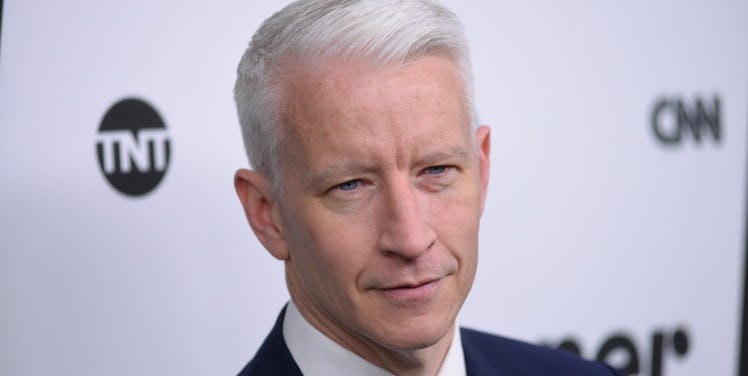
Why I Admire Anderson Cooper's Refusal To Name The Orlando Shooter
Since the terrifying shooting on Sunday at a gay nightclub in Orlando, information about the story has swarmed the Internet. One detail, though, has been repetitively and purposefully left out.
Many public figures are announcing their refusal to name the perpetrator in the Orlando shooting, primarily due to the infamy it gives the killer. One of those figures is Anderson Cooper, CNN anchor and "60 Minutes" correspondent.
Anderson Cooper has taken to Twitter to publicize his exclusion of the killer's name and likeness.
Will be reporting from #Orlando tonight from 8-10pm. And no, I won't be showing the killer's picture or using his name. — Anderson Cooper (@andersoncooper) June 13, 2016
Many others are behind Cooper. They feel like naming the killer promotes his infamy and – in some ways – gives others incentive to kill.
FBI Director, James Comey, announced in a briefing on Monday that he will not be using the shooter's name because "part of what motivates sick people to do this type of thing is some twisted notion of fame or glory, and I don't want to be part of that for the sake of the victims and their families, and so that other twisted minds don't think that this is a path to fame and recognition."
Comey has stated that the FBI's main focus is to do everything in its power to figure out the killer's past and motives.
FBI Director James Comey says he will not use the #orlandoshooting killer's name https://t.co/6OZtrfIwim https://t.co/P6Xm8xTtYe — CNN Politics (@CNNPolitics) June 13, 2016
Before the first shots were fired, the shooter made three 911 calls, stating his allegiance to ISIS. This shows that he wanted his cause and name to be known: a pursuit that is too often fulfilled by the media.
Chris Combs, an FBI agent in California, told KSAT news back in 2014, "When the media covers it, it unfortunately puts ideas in people's heads.” Combs is one of the many agents who support the "Don't Name Them" campaign, which was started by Texas State University's ALERRT Center.
Sherry Towers, Arizona State University physicist, has done ample research on this subject. She is often a source for the "Don't Name Them" movement.
Towers, in a recent interview with ASU Now, explained the "contagion effect." This is the theory that the publicity received by one shooter motivates another:
We found evidence that killings that receive national or international media attention do indeed inspire similar events a significant fraction of the time.
Anderson was first involved with the movement in 2012, after the Aurora shooting. He interviewed victim Alex Teves' father, Tom Teves, on "Anderson Cooper 360º." Tom Teves and his wife are the founders of No Notoriety, a non-profit organization that urges the media to reduce the use of killers' names and photos.
Cooper also refused to name the perpetrator after the Umpqua Community College shooting in Roseburg, Oregon. Anderson played a key role in the No Notoriety movement by stating,
A quick reminder, the local sheriff says he will not and will not say the shooter's name. Neither will we. We're neither naming him nor showing his photo, even as we learned more about who he was, including the fact that he was enrolled in the class where he opened fire.
The CNN reporter's take to Twitter has also reminded many of us where our focus should lie: on the victims whose lives were so tragically lost. Cooper wrote each victim's name and age, stating, "We must remember them."